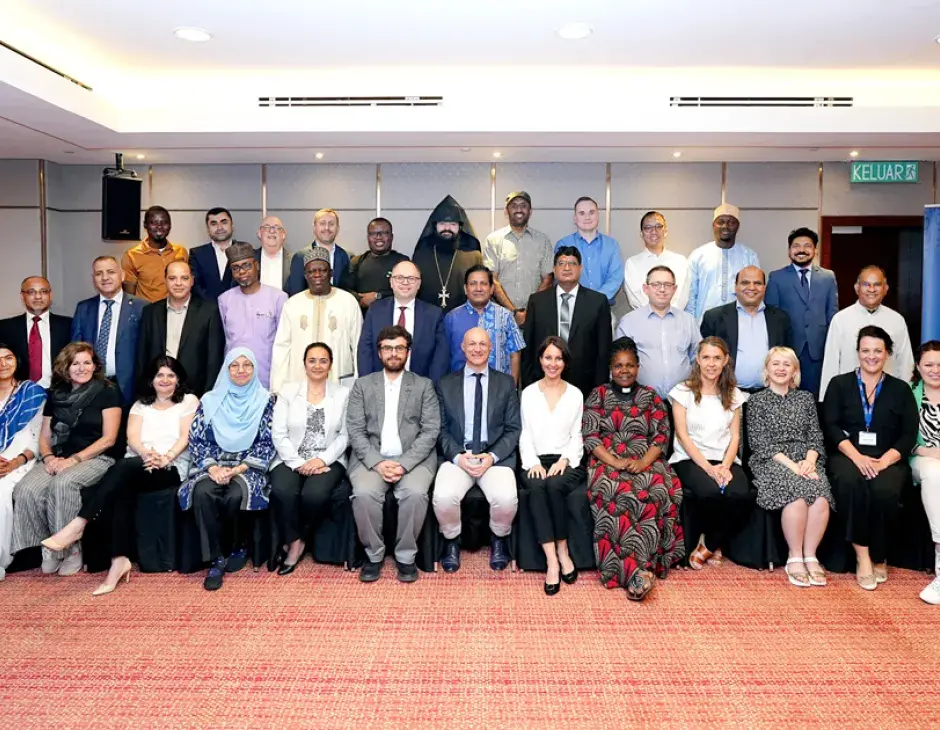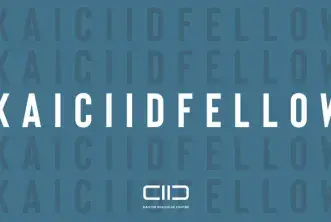The International Dialogue Centre (KAICIID) launched on Friday the KAICIID Fellows Institutional Network— a new initiative to rapidly expand the reach of high-quality interreligious dialogue (IRD) education to parts of the world where it is needed most.
After more than two years of planning, the KFIN was officially unveiled at a meeting of IRD decision makers representing 35 KAICIID Fellows-affiliated religious educational institutions from worldwide in Kuala Lumpur, Malaysia. These stakeholders will constitute the Fellows Institutional Network’s core group, paving the way to all eligible religious education and formation structures that have KAICIID Fellows alumni within their ranks to join the Network. They will be working together to build a collaborative network of religious education and formation groups committed to embedding and expanding IRD skills at an institutional level globally.
The need for a new institutional network
Despite some progress in recent years, there remains a lack of interconnectedness between religious education and formation structures and institutions belonging to different faiths. This deficit is particularly problematic for the next generation of religious leaders, who are not adequately equipped with the interfaith skills they need to communicate conductively and respectfully with representatives of other communities.
In light of these findings, it is clear that a global institutional framework is needed to support the development of a robust and independent network of institutions charged with training future faith leaders. The Fellows Institutional Network represents an answer to this challenge, embedding interreligious dialogue education across institutions and expanding the regional presence and institutional footprint of KAICIID’s hugely successful Fellows Programme.
Core objectives
By helping equip faith leaders with the skills needed to confidently navigate the complex and diverse global religious and cultural landscape of today, the Network aims to promote inclusiveness, a culture of peace, non-violence, and an appreciation for religious and cultural difference across all communities. Within this overarching ambition, the network has four core objectives:
- To strengthen interreligious relationships and build cooperation among religious education and formation structures.
- To deeply embed a culture of IRD in religious education and formation structures throughout the globe.
- To allow religiously diverse people to engage in interreligious and intercultural cooperations and exchanges in ways that respect their beliefs, customs, practices, and values.
- To position the incorporation of interreligious education into religious education among policymakers at all levels. This will serve as a key portal for faith-informed world citizenship education involving religious people and perspectives in contextualised IRD learning which, in turn, will reinforce tolerance, respect human rights, and advance the UN’s Sustainable Development Goals 4, 5, 16, and 17.
In pursuit of these goals, the Fellows Institutional Network will utilise hubs of religious education as important strategic entry points to the vast and complex global religious ecosystem. Among these groups is St Paul’s University in Kenya, represented at the Kuala Lumpur meeting by KAICIID Fellow Ven. Scholar Wayua Kiilu.
Drawing on KAICIID’s network-building expertise
KAICIID is well-placed to engage current and future Fellows Institutional Network members on an institutional level thanks to the Centre’s resources, mission, mandate, and unique status as an intergovernmental organisation with a multi-religious board of directors.
In addition to this, KAICIID has extensive experience in building and expanding international cross-community networks. The Fellows Institutional Network will be catalysed from one such collective — the KAICIID Fellows Alumni Network — leveraging the connections and expertise of the Centre’s Fellows Alumni to widen the new network’s reach and institutional impact.
Moving forward, the KAICIID Fellows Alumni Network and the Fellows Institutional Network will develop together and complement each other, with specially trained Fellows from the Alumni Network forming mobile teams to provide support to institutions that require IRD training or technical assistance, such as IRD curriculum development. Despite this overlap, the Fellows Institutional Network will exist independently of the Fellows Alumni Network, which is a growing individual network of Alumni currently consisting of more than 450 Fellows from 86 countries. However, the Network will source its representatives from decision-makers within Fellows-affiliated institutions, among others, but not necessarily Fellows themselves.
Following a global systematic needs assessment of the Fellows institutions on IRD and based on its findings, the process to launch the new network started in 2021, with an online consultation with decision makers from diverse institutions. This weekend’s event in Malaysia represents the second phase and formal launch of the Fellows Institutional Network, with core members coming together to share ideas. The third phase, expected to take place in the second half of 2023, will involve designing and implementing the first Fellows Institutional Network activities.
The International Dialogue Centre (KAICIID) is excited to announce the premiere of the first documentary in a series…
The International Dialogue Centre (KAICIID) is now accepting applications for its 2024 KAICIID Fellows Programme. The KAICIID…




